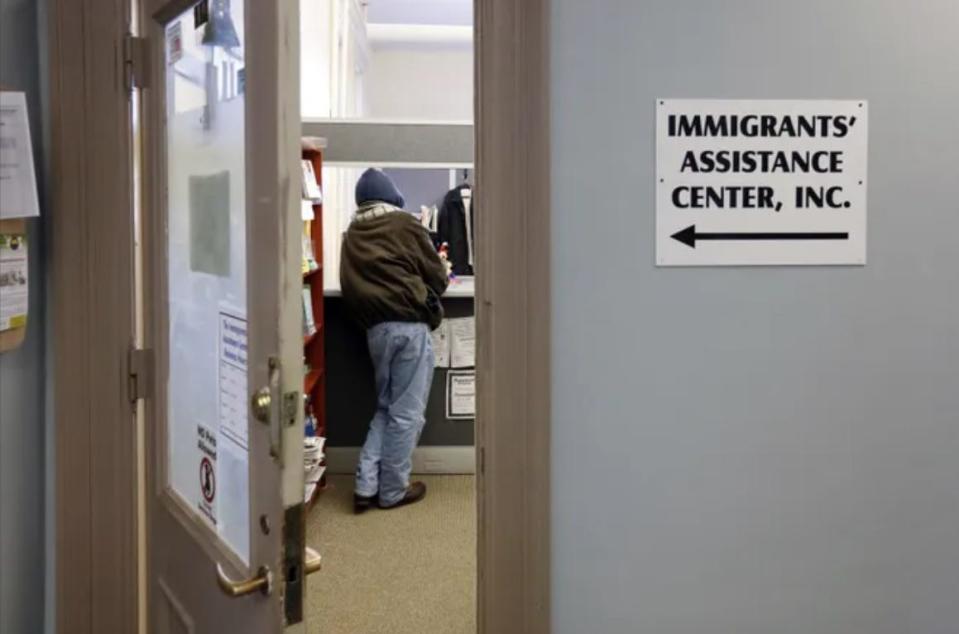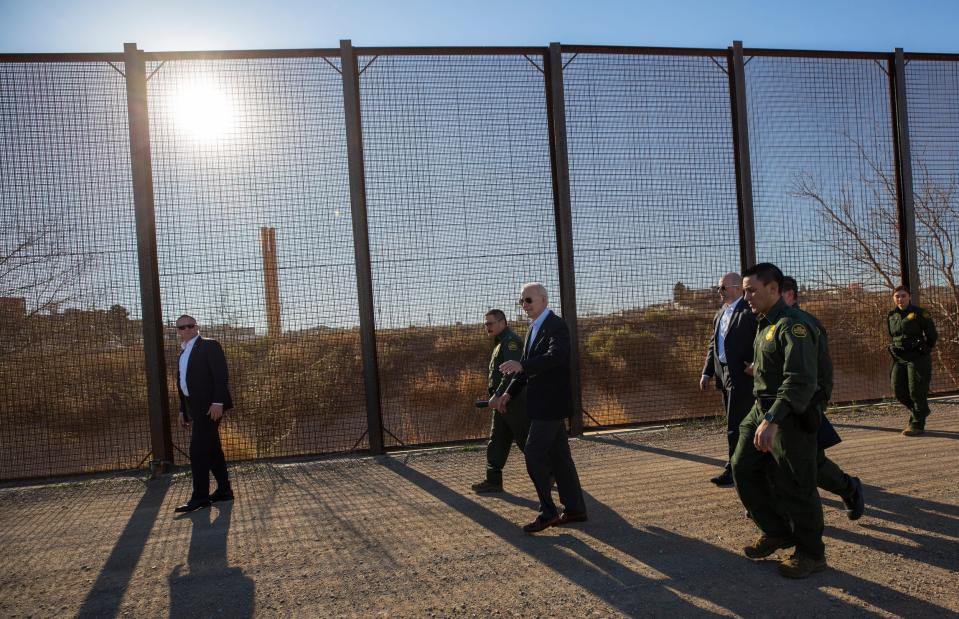The rules have changed for immigrants from countries in turmoil. New Bedford is helping.
NEW BEDFORD — Since President Joe Biden signed an order that created new means for people of Nicaragua, Venezuela, Haiti and Cuba to temporarily enter and work in the U.S., the Immigrants' Assistance Center in New Bedford has fielded a fair number of calls seeking information, IAC President Helena DaSilva Hughes says.
"There have maybe been some about Cuba but the calls have been mostly about Venezuela and Nicaragua," she said, estimating she's personally taken about 25 calls relative to the new rules since the Department of Homeland Security announced the order on Jan. 5. "The reason these countries are eligible for this is because of their political turmoil."
The order, which went into effect Jan. 6, allows for people of the affected countries to enter the U.S. for a period of two years under temporary protected status, or TPS, also known as advance parole. As DaSilva Hughes explained, this requires a person already living in the U.S. to apply to become a sponsor to those looking to enter the country. Once here, those under TPS are to live with and essentially be supported by those sponsors.
The rules: Who qualifies, and what they can and can't do once they're here
While the order gives opportunity for U.S. entry to people who may not otherwise qualify for a visa, there are certain rules and restrictions that disqualify some. One is that they must be living in one of the said countries at the time of application and approval.
"These individuals have to be physically living in these countries to be eligible," said DaSilva Hughes. "So we've been saying to people who are asking about becoming sponsors is please tell people it's important that they stay put during the application process so they don't jeopardize their cases."
Get the latest local news:Addiction treatment chain with Fall River clinic charged with health care fraud
Once here, DaSilva Hughes said those who have TPS can apply for a work permit. However, they are not eligible for any type of public assistance, which is why a major component of the approval process for those looking to become sponsors is checking for financial stability.

"The person becoming a sponsor is basically taking financial responsibility," she said.
DaSilva Hughes says that it's also important to note that TPS is not a means of eventually obtaining more permanent U.S. residency.
"After the two years are up, they'll have to apply to renew their temporary protected status, which is exactly what it sounds like," she said. "It's not going to lead them to a green card."
'Small Nicaraguan community' forming
DaSilva Hughes says most of the calls she's been getting relative to DHS' recent order are from people in Bristol County who know someone in one of the affected countries and are interested in using this means to bring them over. In some cases, there have already been some arrivals.
"The people calling could be a cousin or family member, someone who knows a person who is interested," she said. "We are seeing a small Nicaraguan community arriving."

According to New Bedford Public Schools spokesperson Arthur Motta, the city's public school district has registered two students from Nicaragua since the order went into effect.
However in many cases, callers to the IAC must be told they or others would not qualify because they are already in the U.S., DaSilva Hughes said.
Hungry? Click this:New Bedford Eats: Ramen Mondays, seafood specials, sushi market
More things to know
Sponsorship requirements can be met by more than one person: Even if a person does not qualify to become a sponsor by themselves based on income or some other reason, it may be possible for multiple sponsors to be approved for a single party, DaSilva Hughes says.
Fees are being waved: According to DaSilva Hughes, currently, fees are being waived for the sponsorship application process with DHS as well as fees for getting a work permit.
Plenty of work: While qualification of those looking to take in people from affected countries will largely hinge on their financial stability to support them, DaSilva Hughes says new TPS arrivals with work permits typically have no trouble finding jobs, especially now with the current U.S. workforce shortage. She also mentioned the IAC is able to assist in job placement.
How to apply: Those interested in becoming a sponsor must fill out a federal I-134A form for each individual they are seeking to support, including minors. This can be done online through U.S. Citizenship and Immigration Services at uscis.gov/i-134a.
For questions, help: Anyone looking for more information on temporary protected status can contact the Immigrants' Assistance Center in New Bedford at 508-996-8113, or stop by at 58 Crapo St. Visit the IAC online at www.immigrantsassistancecenter.org.
This article originally appeared on Standard-Times: New way for Nicaraguans, others to enter US sees South Coast interest

